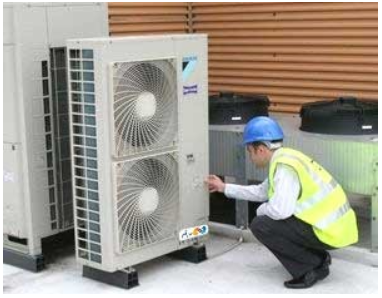Back in May 2020, the UK Government consulted on changes to The Energy Performance of Buildings (England and Wales) Regulations 2012. The key amendment for consultation was whether to set the threshold for regular inspections of the air-conditioning systems at a rated output of 70kW, instead of the lower 12kW existing threshold.

The reason for this was to:
- streamline the inspection regime;
- align Government policy with the latest version of the Energy Performance of Buildings Directive; and
- target systems with the greatest potential for energy efficiency and carbon savings.
Consultation responses were published in November 2020. A resounding 87% of respondees disagreed with raising the threshold from 12kW to 70kW.
Here’s a summary of the key points from the responses:
- The combined energy use of large systems presents more opportunity for carbon savings.
- Most of these systems will already be subject to regular checking and maintenance programmes.
- Smaller systems are more likely to be less well managed, checked and maintained, so a mandatory inspection regime is more beneficial.
- Increasing the threshold is a lost opportunity to realise carbon and energy savings and to encourage building owners with smaller systems to maintain and improve energy efficiency and reduce carbon emissions.
- Typically, 30-30% energy savings can be achieved for smaller systems if the whole package of recommendations were implemented.
- A mandatory inspection regime helps achieve greater awareness, and therefore compliance with, the F-gas Regulation and ODS Regulation too.
As a result of the consultation, the Government has taken the decision to move away from the European Directive’s proposal to increase the threshold and keep it at the existing threshold.
To summarise, you must comply with the mandatory inspection of the energy efficiency of your air conditioning systems if they have an effective rated output of more than 12kW.
This has not changed as the Government has decided not to increase this to 70kW.
